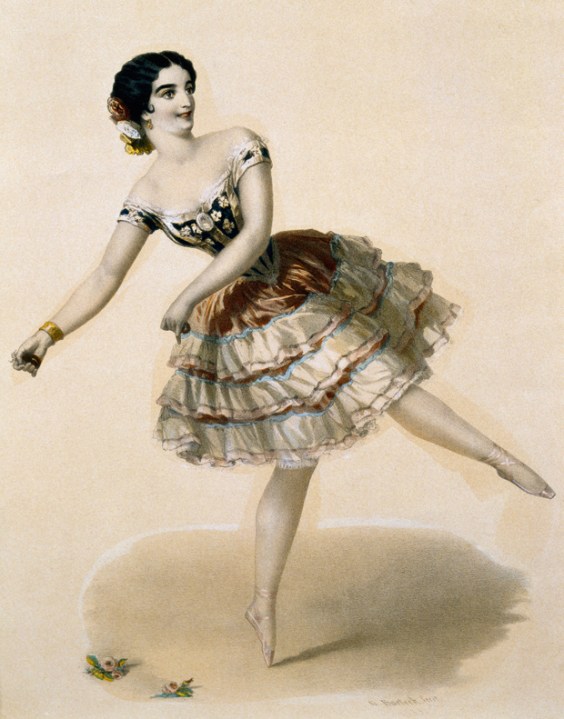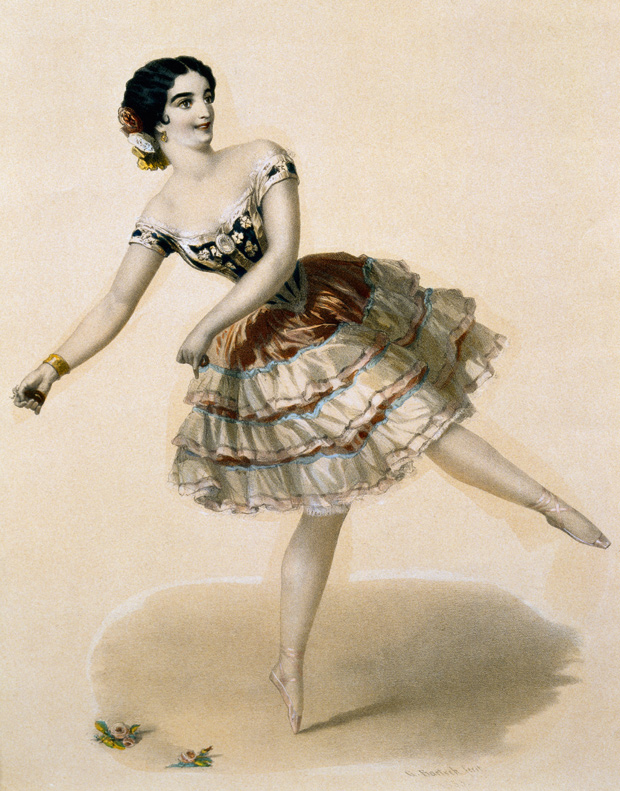When Robert Sackville-West was writing Inheritance (2010), his history of Knole and the Sackvilles, he was ‘struck’, as he recalls in his new book, by the way that Sackvilles have ‘tended to take Italian or Spanish dancers as mistresses’. The most notable of these was Josefa Duran, the flamenco dancer known as ‘Pepita’.
A barber’s daughter, she was born in 1830 in the backstreets of Málaga — ‘Oh such a slum it is!’ observed her grand-daughter Vita Sackville-West, who wrote a biography of her, Pepita (1937). By the 1850s she was the toast of Europe, and in 1852 she began a liaison with Lionel Sackville-West, later the 2nd Lord Sackville, which lasted until her death in 1871. He bought her a house at Arcachon (‘one of Arcachon’s exclusive 19th-century villas’, as Robert Sackville-West puts it), and she bore him seven children, of whom five — Max, Victoria, Flora, Amalia and Henry — survived into adulthood.
In Orlando (1928), Virginia Woolf’s romance about Knole and Vita, a deed of marriage is ‘drawn up, signed, and witnessed between his Lordship, Orlando, Knight of the Garter, etc, etc, etc., and Rosina Pepita, a dancer…’ But there was no such deed between Lionel and Pepita, who in 1851 had married Juan Antonio de Oliva, a fellow dancer, from whom she separated that year.
In letters to Pepita and others Lionel referred to her as his wife, and he signed the birth certificates of several of their children as her husband, and Flora’s marriage certificate. But, as he acknowledged, it had not been his ‘habit in life to read documents carefully before I signed them’; and when pressed about his marital status, as he eventually was under oath, his responses were hopelessly muddled:
I never described Pepita as my wife… I will not swear I never described her as my wife… I don’t recollect ever saying that I was the legitimate father of Flora. I will not swear I did not…
This muddle naturally had an impact on his children, who were obliged to abandon their hyphen and become plain Sackville Wests. Max became a farmer in South Africa, where he was ‘adrift’, ‘bewildered’, and ‘reduced by circumstances and the rinderpest to milking his own cows’. Despite their illegitimacy, Amalia and Flora both married French diplomats; at Flora’s wedding, in Paris in 1888, when the word légitime was pronounced by the maire, some of the guests coughed in unison to drown out the lie. She later divorced, and went on the stage; in 1912 the Times reported that she was performing a series of ‘causeries littéraires musicales et dansées’ with the delightfully named Mlle Phine de Nocker.
Victoria regained her hyphen by marrying her first cousin, ‘Young’ Lionel, who became the 3rd Lord Sackville, but he eventually drove her out of Knole by installing his mistress there. In old age she became fantastically mean, once writing to Vita on paper filched from the ladies’ lavatory at Harrods — ‘Regarde, comme ce papier prend beaucoup mieux l’encre que Bromo’ — and lived in a freezing villa on the cliffs at Roedean, blind, embittered and malicious. ‘The old woman ought to be shot,’ declared Virginia Woolf.
Henry, meanwhile, persuaded himself, with the encouragement of various interested parties, that he was the legitimate heir to Knole, spent 14 years collecting a mass of evidence and embarked on a long, celebrated and ruinous lawsuit, which was finally thrown out in 1910. In a Paris flat four years later, immediately after his wife had died, he shot himself in the head; all they had between them was 10 francs. They were buried together in a suburban cemetery, under the name ‘Sakville’.
The Disinherited tells a confused, wretched and dispiriting story, yielding no moral other than the obvious but comforting one that the possession of wealth is no more a guarantee of happiness than the desire for it. The truth, writes Robert Sackville-West, who is the 7th Lord Sackville and the current tenant of Knole, ‘is that the Sackvilles have never been quite rich enough for the size of their house’.
Mortimer, ‘Old’ Lionel’s brother and predecessor, ‘felt so threatened’ by the place that he went to live at the Grand Hotel, Scarborough. And, in a superbly emblematic image, Eddy Sackville-West recalled Old Lionel ensconced amid the Renaissance splendour of Knole, with its 365 rooms, 52 staircases and seven courtyards, in a ‘cold and cheerless cell’, a room quite empty save for a leather armchair and a glass case containing a wasp’s nest.







Comments